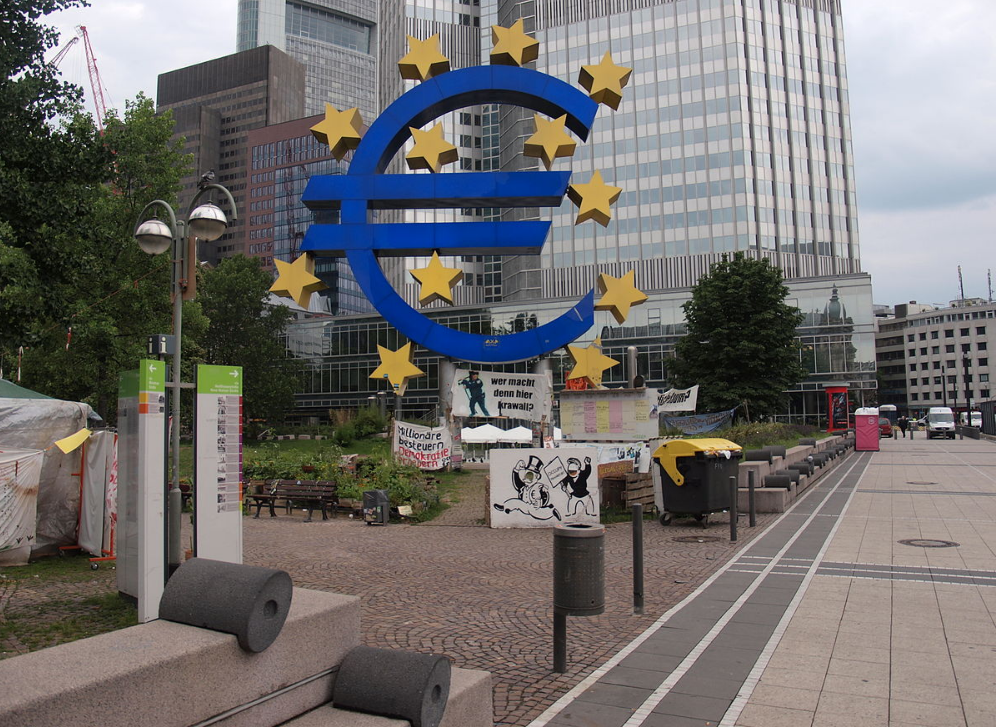Some members of the ECB board have determined the limit of the program of buying up assets at the level of 2.5 trillion euros, Bloomberg reports with reference to its sources. At the same time, it is noted that by the end of this year, the volume of asset purchases will reach 2.28 trillion euros, and now discussions are related to how to distribute the program’s remainder.
The Board of Governors of the ECB was diverged on the question whether the regulator should indicate the end date of the QE. However, Bloomberg also notes that officially the options for the renewal of the asset purchase program were not discussed, and the ECB's executive board has not yet submitted its proposal to the Board of Governors.
It should be noted that a critical limitation for the expansion of the QE program of the European Central Bank is the volume of bonds available for purchase in accordance with the rules of the regulator.
At the same time, some representatives of the ECB are in favor of reducing the asset repurchase program, stating that the volume of securities on the balance sheet will continue to be the main source of incentives, as, as in the case of the Fed, the income from securities on the balance sheet will be reinvested. Some of the ECB members believe that monthly purchases should continue until inflation in the euro area shows signs of significant acceleration.
Recall, the ECB undertook to buy bonds worth 60 billion euros a month until December 2017.
Last Friday, Bloomberg reported that monetarists are allegedly considering the possibility of reducing QE by at least half - up to 30 billion euros a month from January 2018 to September next year, provided that the period can be extended, if necessary.
However, it is worth noting that the currency market reacted to this message only by a short-term appreciation of the euro. Later on Friday there was another attempt to increase the rate of the European currency, which was a reaction to weak data on inflation in the US, but it also ended in failure.
Apparently, on October 26, officials of the ECB will finally determine how much they need to buy debt next year. This will mean that the QE will decrease significantly from January.
After more than 2.5 years that have passed since the attempt to revive the region’s economy through the purchase of bonds, part of the regulator's management sees a recent period of steady growth as a reason for maintaining support.
Reuters also writes that ECB politicians are ready to extend the purchase of assets at the October meeting, but with the condition of lowering volumes.
Everyone agrees that the program should be "open", that is, be able to extend. At the same time, consensus suggests a reduction in QE to 25-40 billion euros, although some insist on a sharp decline.
source: bloomberg.com, reuters.com
The Board of Governors of the ECB was diverged on the question whether the regulator should indicate the end date of the QE. However, Bloomberg also notes that officially the options for the renewal of the asset purchase program were not discussed, and the ECB's executive board has not yet submitted its proposal to the Board of Governors.
It should be noted that a critical limitation for the expansion of the QE program of the European Central Bank is the volume of bonds available for purchase in accordance with the rules of the regulator.
At the same time, some representatives of the ECB are in favor of reducing the asset repurchase program, stating that the volume of securities on the balance sheet will continue to be the main source of incentives, as, as in the case of the Fed, the income from securities on the balance sheet will be reinvested. Some of the ECB members believe that monthly purchases should continue until inflation in the euro area shows signs of significant acceleration.
Recall, the ECB undertook to buy bonds worth 60 billion euros a month until December 2017.
Last Friday, Bloomberg reported that monetarists are allegedly considering the possibility of reducing QE by at least half - up to 30 billion euros a month from January 2018 to September next year, provided that the period can be extended, if necessary.
However, it is worth noting that the currency market reacted to this message only by a short-term appreciation of the euro. Later on Friday there was another attempt to increase the rate of the European currency, which was a reaction to weak data on inflation in the US, but it also ended in failure.
Apparently, on October 26, officials of the ECB will finally determine how much they need to buy debt next year. This will mean that the QE will decrease significantly from January.
After more than 2.5 years that have passed since the attempt to revive the region’s economy through the purchase of bonds, part of the regulator's management sees a recent period of steady growth as a reason for maintaining support.
Reuters also writes that ECB politicians are ready to extend the purchase of assets at the October meeting, but with the condition of lowering volumes.
Everyone agrees that the program should be "open", that is, be able to extend. At the same time, consensus suggests a reduction in QE to 25-40 billion euros, although some insist on a sharp decline.
source: bloomberg.com, reuters.com



















